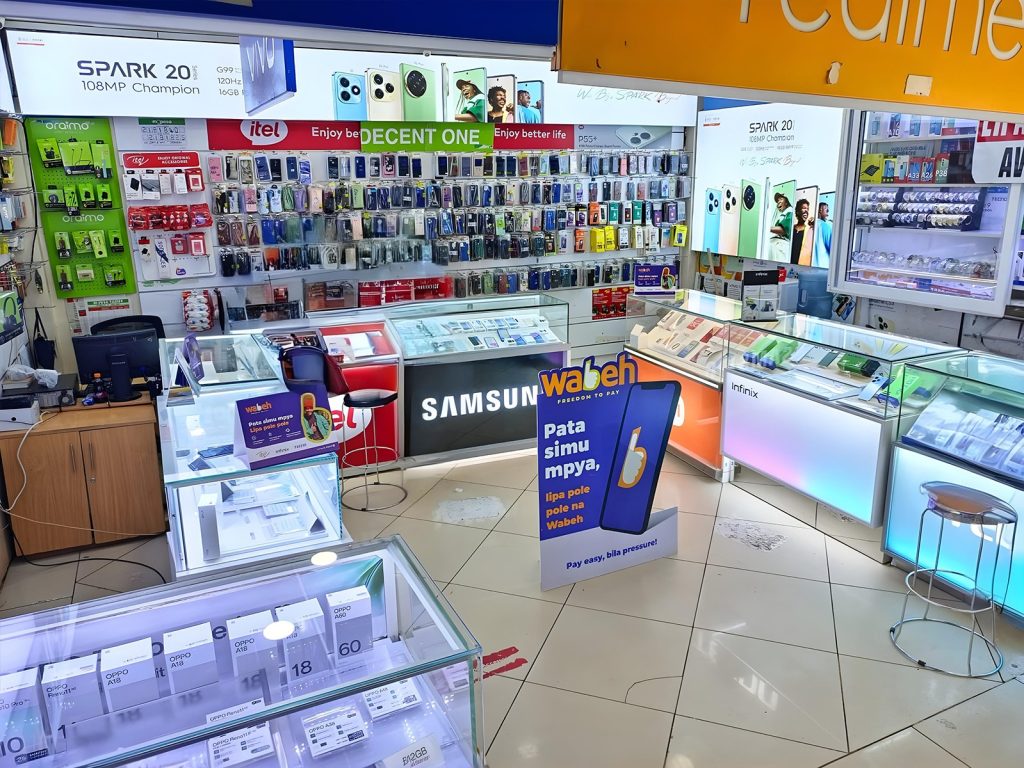Physical Address
60 Ekwema Cres, Layout 460281, Imo
Physical Address
60 Ekwema Cres, Layout 460281, Imo

Kenyan BNPL startup Wabeh has ceased operations, closing its doors after facing rising loan defaults and strained cash flow. This news comes as a blow to Kenya’s fast-growing buy-now-pay-later (BNPL) industry, which promises people the chance to buy goods and pay in smaller, manageable portions. Wabeh has ceased operations due to loan defaults and cash flow problems that became too much to handle.
Wabeh was started with a simple idea: make it easier for people to own smartphones by letting them pay a small deposit and then spread the rest of the payment out over days, weeks, or months. Customers liked this model because they could get a device they needed without paying all at once. However, these advantages came with risks. Growing numbers of customers failed to pay back their loans. According to one Nairobi retailer, out of 50 phones sold through Wabeh, less than half are being paid for. The retailer said, “Wabeh paid us upfront for those phones. But now they’re stuck waiting for money that may not come back.”
Read Next: Bolt Launches Family Account for Users to Book and Pay for Rides of Up to 9 Persons
The way Wabeh works is simple. Retailers keep the phones in their shops. When a customer wants a phone but needs credit, Wabeh finances the sale, usually with a 30% deposit from the customer and the rest to be paid in installments. Wabeh also gives a small fee to major phone manufacturers when one of their locked phones is sold on credit. The company’s earnings come from a markup in the selling price, not from charging interest, so Wabeh was able to avoid tough lender rules, at least for a while.

Unfortunately, as loan defaults mounted and customers stopped paying, Wabeh’s own cash flow dried up. With no extra funds from deposits or big credit lines, Wabeh could not keep paying its partners and vendors. Wabeh has ceased operations because these problems outweighed the money the company was bringing in.
To try to reduce risk, Wabeh put special remote lock software on each phone. If a customer missed a payment, the phone would be locked and could not be used. But even this was not enough. Some people simply damaged the device or walked away from the debt when payments became too costly or confusing. Many of those who signed up underestimated how much they’d be paying, KES 200 (about $1.56) each day adds up quickly, especially for people who earn money informally or do not have steady work.
Wabeh’s struggles were also made worse by its position in a regulatory “grey zone.” Because installment plans did not involve traditional loan interest, Wabeh and other BNPL companies did not need a banking or digital lending license. But new bills in Kenya’s parliament, like the 2024 Business Laws Amendment Bill, may soon require these firms to get proper approval from the Central Bank of Kenya. Without a license, Wabeh cannot legally increase its lending or recover money efficiently, meaning its hands are tied at a critical time.
With customer complaints rising, often about unclear pricing or sudden lockouts for missing even a single day’s payment, Wabeh has ceased operations and left both its retailers and thousands of customers wondering what’s next. While some vendors wait for overdue payments, customers are frustrated to find their phones locked after one late installment.
Read Next: Infobip Launches WhatsApp Voice Calling for Businesses
Despite Wabeh’s problems, the overall BNPL market in Kenya continues to grow, expected to reach $1.18 billion in 2025. But Wabeh’s collapse highlights the dangers for similar companies: if you cannot collect payments or secure enough cash flow, survival is tough.
For now, Wabeh has ceased operations due to loan defaults and cash flow, and it is unclear if the company will come back. Its closure is a warning to other startups in the field. The future of BNPL in Kenya may depend on how new rules are enforced and whether these businesses can better protect both themselves and their customers from unexpected shocks.
Was this information useful? Drop a nice comment below. You can also check out other useful contents by following us on X/Twitter @siliconafritech, Instagram @Siliconafricatech, or Facebook @SiliconAfrica.